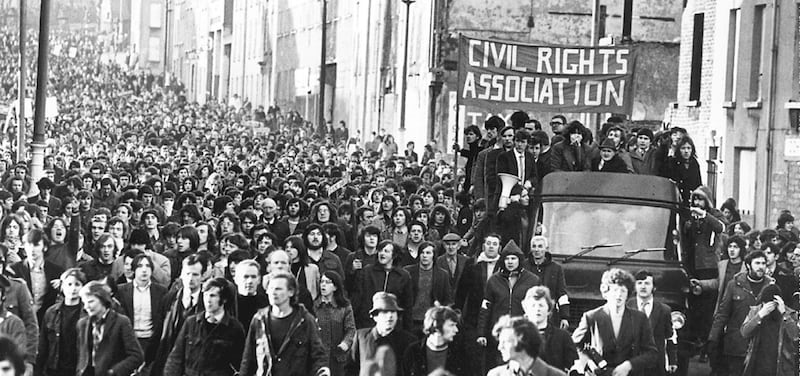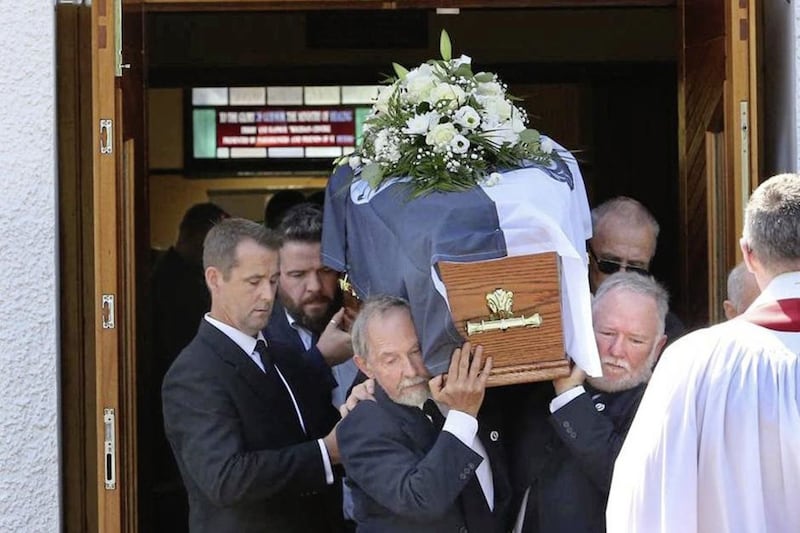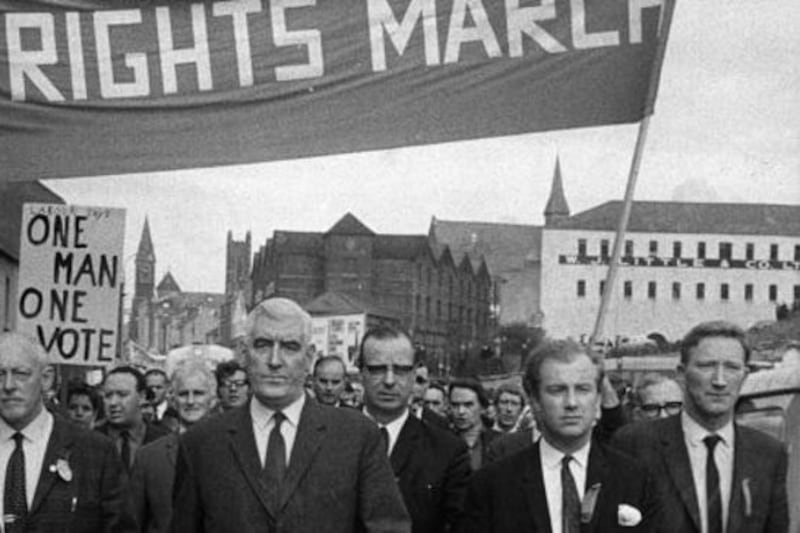IF one person can symbolise the spirit of hope which marked the 1960s, that one person was Ivan Cooper. From a unionist background, his concern for democracy and political decency brought him from Claudy Young Unionists, to standing as an independent for Derry Rural District Council and later becoming secretary of the newly re-formed Northern Ireland Labour Party in Derry.
With the rise of the civil rights movement and the Unionist government's reaction to it, there was only one place for the principled Ivan Cooper to be and that was with those seeking fairness and justice.
Although Northern Ireland Civil Rights Association (NICRA) tried to establish a branch in Derry in August 1967, it never got off the ground. It was not until after the RUC attack on civil rights marchers in October 1968, to keep them outside the city walls, that Ivan became politically active on the streets.
Three days after the attack, Derry Citizens Action Committee (DCAC) was formed, with Ivan as chair and John Hume as vice-chair. Although loosely affiliated to NICRA, it was mainly focused on issues within the city, including unemployment.
DCAC's first protest was a mass sit-down in Guildhall Square on October 19 when, pointing at Derry's walls, Ivan Cooper said: "In a peaceful civil rights march, we will walk within the walls of this city. We mean business". He was right.
Read more:
- Ivan Cooper's mantra 'never give up the fight for justice' stayed with him until the end
- In pictures - the civil rights movement

From then onwards, four broad strands of thought emerged from the political upheaval created by the civil rights movement. NICRA favoured reform of the state. Some left wing groups saw civil rights as a road to revolution and old-style republicans advocated violence.
A fourth group saw the way forward through politics, particularly by the formation of a new political party. That was Ivan's view and although he was active in many subsequent civil rights protests and demonstrations, he came to believe that a truly democratic society could not be achieved in the north without conventional political influence and activity.
For that reason he helped to found the SDLP in August 1970. He played a key role in the party's development and made a significant contribution to its electoral success over many years. Like so many, he eventually despaired of the violence which was destroying so many lives and so much of the hope he had helped to generate. He left politics in 1983.
Read more:Ivan Cooper 'was born to break the mould'
He was a man who saw no difference between Protestants and Catholics and he showed remarkable political courage in sitting with us singing, "We Shall Overcome." By recognising that social injustice did not just apply to Catholics, he personified the non-sectarian nature of the civil rights movement.
When politicians today talk of not wishing to return to the dark days of the past, they ignore the fact that before the dark days, there were good days. Ivan Cooper helped to make those days good days. It is a legacy of which he and his family should be immensely proud and one which earns him a special place in the history of this island.
Read more:
- Ivan Cooper's mantra 'never give up the fight for justice' stayed with him until the end
- In pictures - the civil rights movement








